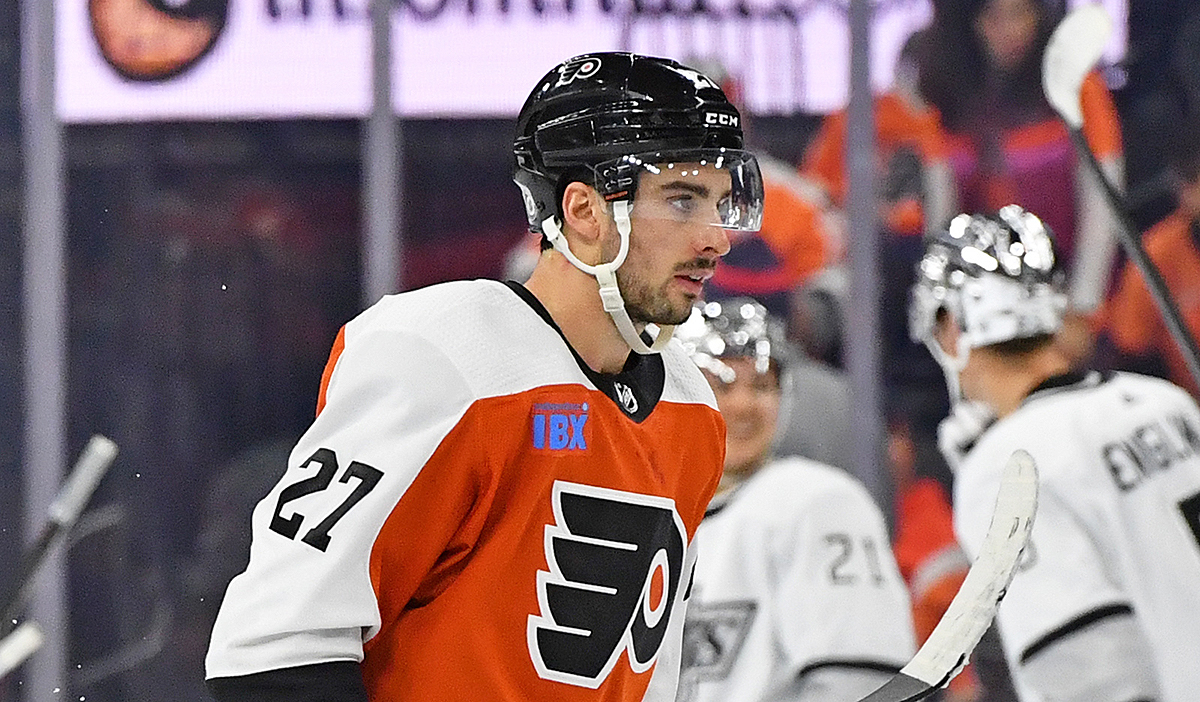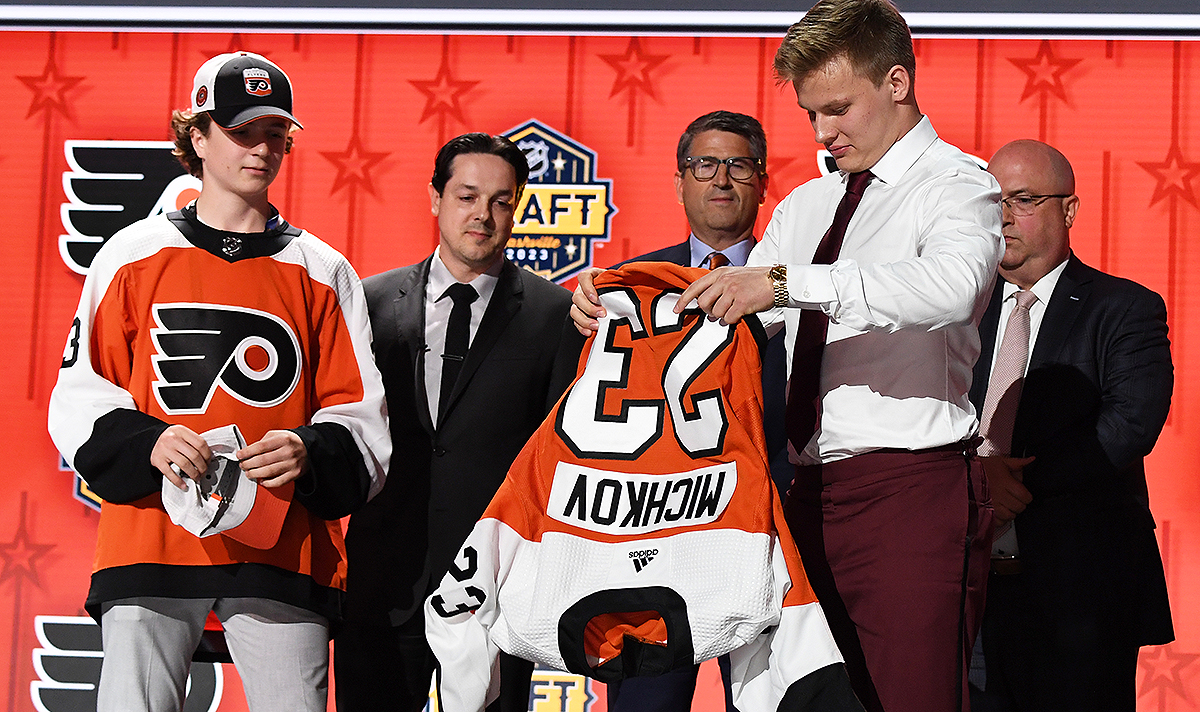In a salary cap-baked world, every NHL team has a pie that's no bigger than the next one.
Some teams prefer the shepherd's pie recipe in which you pack as much into the crust as possible like the Flyers typically do, while a handful of small-market teams play it more on the conservative side.
More importantly, how that pie is sliced up is what truly differentiates the 31 general managers and the rest of their cooks in the kitchen, so to speak.
In sifting through the Flyers' financials, you will notice a seismic shift in the organization's spending just in the past four years.
During Paul Holmgren's final season as general manager in 2013-14, the Flyers' defense was more of a green line than a blue one. According to NHLnumbers.com, the team allocated more money to the back end than any other team in the league: $29.5 million, accounting for 42.5 percent of their total cap dollars. Kimmo Timonen led the way at $6 million. Chris Pronger was still on the books despite a career-ending injury, and the team added Mark Streit at just over $5 million for four years. Interestingly, the Flyers' cap hit for Luke Schenn ($3.6 million) was more than their two goalies … combined (Ray Emery + Steve Mason = $3.1 million).
That was Homer's homemade way of building a team. He made some big trades and spent even bigger dollars to whip up the most expensive defense money can buy. The final product proved to be a little burnt around the edges, as the Flyers ranked 20th in goals allowed during a season in which Peter Laviolette was fired after three games before assistant Craig Berube stepped in and led the Flyers to a first-round playoff loss to the New York Rangers.
Whereas Holmgren's method was more of a short-term, throw-it-in-the-microwave approach, Ron Hextall has proven to be the connoisseur of the Crock-Pot. Turn the knob on low and let it gradually work its way to a boil. Lift the lid, soak in the aroma, and then cover it back up because these things take time.
Philadelphia Flyers
Complete coverage of the Philadelphia Flyers and their rivals in the NHL from NBC Sports Philadelphia.
As the Flyers enter the 2017-18 season, Hextall is slicing his pie much, much different than his predecessor, although not necessarily by choice.
Prior to free agency this summer, the Flyers actually led the NHL in spending … at the forward position. Now they're currently third with 13 players signed at a total of $47.5 million, behind only the Blackhawks (who added Brandon Saad in a trade with Columbus) and the Maple Leafs (who signed Patrick Marleau). It's actually a little more if you include the buyout of R.J. Umberger, whose $1.5 million is essentially dead money, but doesn't factor in the total.
However, the Flyers are the only team in the league spending two-thirds of its cap money on forwards at 68 percent, just ahead of the Devils. That percentage may deviate depending on which rookies make the team, but not much.
The most noticeable difference between 2013-14 and 2017-18 is the Flyers eventually had to pay market value for their two proven star players: Claude Giroux and Jakub Voracek, who comprise roughly $16.5 million or a third of what the Flyers are spending at the position. Four years ago, Scott Hartnell and Vinny Lecavalier were tops at just over $9 million. Throw in pay raises for Sean Couturier, Matt Read and Michael Raffl, and just like that, the Flyers are spending about $15 million more in their forward portfolio than they were paying in 2013-14.
In some ways it's cyclical. Five years from now, Hextall may very well revert back to the Holmgren days if the prospects pan out to be legitimate NHL defensemen.
As for this season, the Flyers have put a lot of eggs in that forward basket. Toronto and Chicago finished top 10 in scoring last season and made the playoffs, so its spending was justified. The Flyers were 20th in goals scored and missed the postseason with a minus-17 in goal differential. For what the Flyers are spending, you should expect more offense and, at the very least, a playoff team that outscores its opponent.
It's a franchise that hasn't missed the postseason in back-to-back years since 1993-94. If that happens, Hextall may need a rolling pin and start from scratch.



